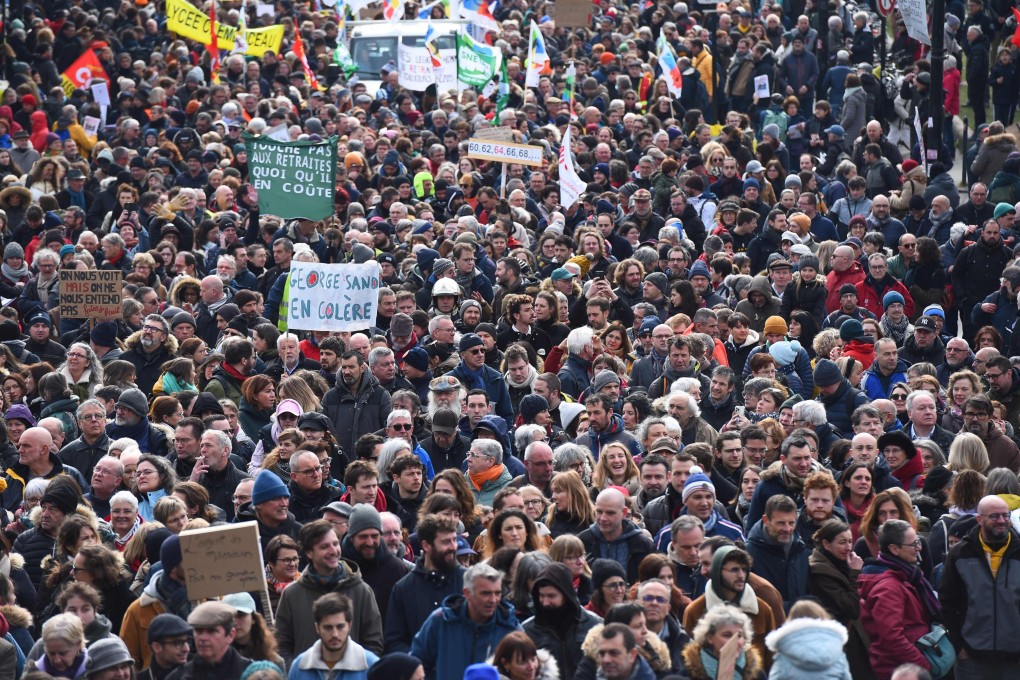France pension strike over retirement age snarls nation
- President Emmanuel Macron wants to raise minimum retirement age, partly to fund transition to greener economy
- Unions urging more people to take part in strikes, saying low-skilled workers and women would be disproportionately affected by government’s planned measures

Fuel deliveries and public transport were severely disrupted in France on Tuesday as unions kicked off a fresh day of protest against a pensions reform that would push back the retirement age for millions.
Unions have vowed to bring the country to a standstill with strikes over the proposed changes, which include raising the minimum retirement age to 64 from 62 and increasing the number of years people have to make contributions for a full pension.
“We mustn’t give up, it’s possible to make the government withdraw on 64 years,” CFDT union chief Laurent Berger told broadcaster LCI, forecasting “more people” on the streets and warning of future actions if workers’ demands were not heard.
Police expect 1.1 million to 1.4 million people to hit the streets on Tuesday in more than 260 locations nationwide, a source told AFP on condition of anonymity.
President Emmanuel Macron put the pensions plan at the centre of his re-election campaign last year.
But he faces fierce resistance from both parliament and the public, with almost two in three people supporting protests against the reforms, according to a poll by the Elabe survey group published on Monday.